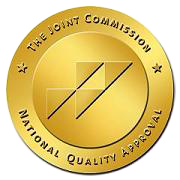Eating Disorder Resources For College Students
15 Ways to Deal With Eating Disorder Triggers
- Ask for accountability from friends. If you have struggled with an eating disorder, let your friends know what behaviors to look for and how to talk to you about it if they notice it.
- Surround yourself with friends who don’t diet and are content with their body—practicing moderate exercise and non-restrictive eating.
- Consider friends who partner with you in recovery instead of illness.
- If you need a treatment team, ask ERC and/or your college counseling center for help finding one. Once you have your team, be completely honest with them—this is how they can help you!
- Let go of old clothes that don’t fit anymore. It’s easier to change the size of your clothes than to change your body.
- Let go of comparison with others and practice self-love and compassion.
- Let go of secrets; talk about what’s happening emotionally as well as with food and/or exercise.
- Use the groups you’re involved with for support (i.e. faith based groups, sororities and fraternities, etc.).
- Reconnect with your body and learn to trust your body — yoga helps!
- Find enjoyable movement, not rigorous exercise.
- To decrease perfectionistic tendencies, practice making mistakes. Know your internal value — you are still worthy of acceptance despite mistakes!
- Plan meals and snacks with friends. Ask them for their company on a weekly basis to go grocery shopping.
- Drop the need to be perfect, a certain weight or size. Instead, know what you value and seek it out (i.e. love, laughter, adventure, etc.).
- Beware of stressful situations including relationship break-ups. Stress can affect your appetite and affect weight. Let this be a time to ask friends to offer you meal support.
- Eating disorder recovery websites and online accounts can sometimes be triggering. I learned that the most recovery-focused websites for me were blogs that supported my values (i.e. enjoying the outdoors through hiking/camping).
Back to School Tips
Going back to school, moving schools, starting school it's all stressful. It's a messy, exciting, scary, and busy transition, one that can be even more trying for those of us in recovery. Yet, it can also be a time for amazing opportunities and growth. I hope these tips help you manage the back to school struggles. Let this transition be one to push you forward in recovery and in life!
Tackle dining hall chaos
Dining halls can pose a huge challenge for college students in eating disorder recovery. There are so many choices and so many people. If possible, try checking out the menu beforehand, go before or after the meal rush, and/or make a consistent routine to have one or two meals a day with friends. Once I had a routine in place and became more familiar with their food set up, I felt like the dining hall was just another kitchen. Most importantly though, talk with your treatment team about any worries you have; they can be an awesome resource in planning ahead before you get to school. Dr. Tallent recommends, “Many campuses have dietitians who are familiar with eating disorders. Check in with the counseling or wellness center to see if there is a campus dietitian who can tour the dining hall with you ahead of time. This can prepare you for anything you may experience and allow you to get a head start on working with your therapist and dietitian on any issues that arise.”
Make movement a social event
College recreation centers can be intimidating to say the least. Social comparison can be at an all-time high, just like any gym environment. With the added stress of starting school, movement can be a slippery slope for some individuals in recovery. If you've got movement in your treatment plan, try making movement a social event, going with friends to play basketball, doing intramural sports, or just planning evening walks around campus. I loved going to dance with friends in the open gym space a few nights a week; it took the focus off comparison and compulsion and made it so much more fun! If movement is restricted for you, work with your treatment team to see what appropriate options may be available.
Schedule self-care
Here's a typical college schedule:
- 8 a.m.: class.
- Work at noon.
- Club meeting at 5 p.m.
- Intramural volleyball at 7 p.m.
- And then: homework after that.
Where is there time for self-care?
Odds are, if you're in school, you're not just doing school things — life is busy! Then you're left with no time to relax, reflect on your recovery journey, or even meet with your support team. If you're like me, and you love to plan and color-code everything, then it might be best to just keep going with what works, (i.e. schedule in your self-care)! Whether it’s meditation, yoga, therapy, journaling, or Netflix shows — treat self-care like an appointment. Self-care is non-negotiable time! Dr. Tallent recommends, “Plan your schedule around your self-care. Make sure to view self-care as fuel for your mental and physical health and put it in your schedule first. Schedule classes and other activities around it. If you’re not a morning person, then don’t schedule a 7:50 a.m. course. Don’t forget to include sleep, meals, and time with family/friends as self-care! If you prioritize self-care, you’ll find yourself with plenty of time and energy for the other important things in your life.”
Build your team
If you're moving for school, build your treatment team beforehand. Looking back, this is something I wish I would have done much sooner. Even if you're only needing to meet a few times, having a therapist, dietician, movement specialist, etc. already in place makes it that much easier to ask for help when you need it. According to Dr. Tallent, nearly every campus has a campus counseling center and health center. Reach out to them early to set up appointments before you actually need them! Eating Recovery Center has a lot of information about campus referrals; if you have questions about finding a campus referral reach out to Dr. Casey Tallent.
Get active-ism
One of the best things I did at the start of school was to join a student group committed to raising awareness about eating disorders and changing the conversation around food and bodies. I helped hang posters, organize events, and lead discussions. Engaging in this type of activism made me feel like I could use my own struggles to help others and it held me accountable; if I'm preaching awareness and recovery, I should probably be on that path too! Try searching your school’s student groups for mental health or eating disorder related clubs.
Identify possible treatment options.
Conduct some research on eating disorder and mental health treatment options that will be available to you. Nearly every college now offers university health and counseling centers and many offer treatment for eating disorders. Call the college counseling center to see if they have an eating disorders treatment team or someone who works with eating disorders; go ahead and make an appointment early! This will allow you to develop a relationship with a provider early on — or to make alternative arrangements early if they don’t offer services.
Look into Disability Services.
Did you know that those struggling with mental health issues or physical health issues qualify for Disability Services? Consider registering with the Disability Services center on campus. Many students fail to register here for fear of stigma; however, Disability Services can provide many services to students — and you can choose when and how you use them. This service is confidential and is not attached to your academic record. You might register and never need to use the services, but you may benefit from receiving services at some point in time. My suggestion is to register early, because you may want to use accommodations at some point — and if you register late in the semester there may not be time to receive accommodations.
Seek out supportive peers.
Look for an eating disorders education and prevention group, a healthy outlook peer educators group, or something similar on campus. These groups can help you focus on eating disorder recovery in college, find a supportive, knowledgeable peer network and engage in prevention work, if you feel you are ready.
Don’t over commit.
You may be tempted to get involved with everything, but don’t! Choose one or two things that you feel passionate about and get involved with those. This will help you avoid feeling overwhelmed with multiple commitments when your academic work becomes challenging.
Remember your most important values.
Know what you value most and incorporate these values into your schedule. If family connection is important to you, put family time in your schedule (e.g., Skype or Face Time calls, going home once a month, etc.). If community service is important to you, get involved with a service organization on campus. If work is important, look at finding a campus job where the importance of academic deadlines will be understood. Bottom line, consider your values and plan your schedule with them in mind! I often worked with students who were under extreme levels of stress simply because values other than academics weren’t being incorporated into their schedules.
Relax.
Include time each day to practice mindfulness and relaxation and make sure you are getting quality sleep and eating regular meals. In working with thousands of students, I noticed that these important wellness practices were often left off of schedules and therefore abandoned by many students. Remember that in order to function fully academically and socially, you need to be well rested, nourished, and emotionally prepared!
Ask for help.
You are not alone. Don’t be afraid to ask for help. Silence is easy, but asking for help is a sign of strength! Expect and accept that old methods of coping may resurface and make plans to respond accordingly. Find the people and resources you need to make it through without falling into old, ineffective patterns.
Change is hard and old methods of coping can resurface if you don’t plan for additional ways to cope with stress. But, if you practice these tips above, I have a feeling that you’ll be able to start your new academic year with all of the tools that you need to be successful.
7 Ways to Support College Students With Eating Disorders
The demands on college mental health professionals are particularly challenging; therapists have to be prepared for any student who walks through the door regardless of the presenting concern.
Unfortunately, most therapists do not receive much training on how to treat eating disorders. They are often forced to piece together their own training.
Encourage students to seek help for eating disorders.
Students need to be invited to seek support for eating disorders (ED) and, sometimes, they need to be invited multiple times. By the time they get to college, many college students have either been shamed or praised for their eating disorders by friends, family, coaches, physicians, and even strangers, Make a difference and encourage students to seek help through outreach events, by using web education and tools, and by creating a safe place that offers ED treatment.
Plan outreach events for eating disorder awareness.
The college environment can be stressful and competitive. You can host events throughout the year that support body positivity, show healthy ways to cope with stress, and highlight helpful resources. Consider hosting a stress-free day, providing information about your services, having an Ask-the-Dietitian booth, and hosting body positive events throughout the year. I’ve created campus kits that we can send you to help with these activities.
Utilize your website and social media opportunities.
Let’s face it, we’re in the digital age and our students are likely to check out websites, apps and social media before they ever step foot inside our centers or make a phone call. Make it easy for them to get help. You can highlight information about your services for eating disorders on your website along with information and links to other helpful websites.
Provide a safe and welcoming space.
Once a student has finally made an appointment and walked in to your center, make sure that they don’t receive any messages that it is not safe to talk about their struggles. What can make it unsafe to disclose? Pay attention to magazines or information displayed that might emphasize weight loss, the need for body changes, or other contrary messages.
Provide specific services for students with eating disorders.
All too often I hear from parents and students who struggle because their college doesn’t offer services for eating disorder treatment. Statistically, we know that students on college campuses are at the prime age to struggle with eating disorders — and that they are, in fact, struggling. These students are often dedicated, high-achieving students that need support so that they can do all of the great things in life they are capable of doing.
Offer (or pursue) Continuing Education on eating disorders.
Seek out education to improve your services. Listen to my free CE webinar (Registration link) to identify what you need on campus, how to begin or improve offering services and to get an overview of eating disorder statistics relevant to colleges.
Practice (and encourage) self-care.
As a counseling psychologist, I would be remiss not to mention the importance of self-care. College mental health care is rewarding, but it is very demanding work. Practice what you preach and make sure you engage in good self-care so that you can offer the best care to your students. Find some time to get lost in a book, go for a walk, engage in a hobby, and, please, spend time relaxing!
Struggling with an eating disorder?
One conversation can make all the difference. Connect with us today.
Get Help NowConnect With Us



